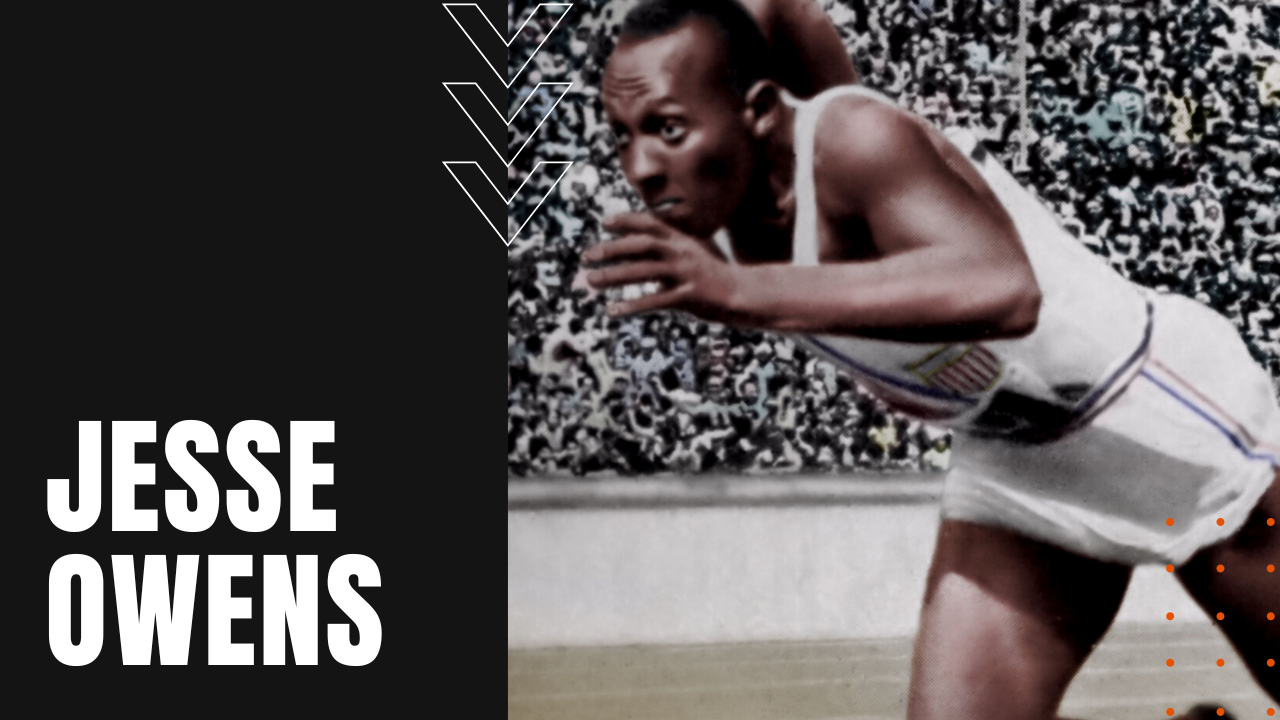Jesse Owens: Breaking Racial Barriers and Running Records

Born in 1913 in Oakville Alabama—the youngest of ten children in a family of poor sharecroppers—when Jesse Owens was nine years old, his family moved to Cleveland Ohio during the Great Migration, which saw 1.6 million African Americans abandon the segregated South for greater opportunities in the industrial North, Midwest and west.
Buckeye Bullet
Developing a passion for running in middle school, Owens reached national attention at Cleveland’s East Technical High School, where he matched world records in the 100-yard dash and the long jump. Known affectionately as the “Buckeye Bullet” during his record-setting years at Ohio State, Owens won a record eight NCAA championships, including a May 25th, 1935 Big Ten meet, where he set three world records and tied a fourth, all in the span of 45 minutes.
As the 1936 Summer Olympics grew near, many athletic groups in the U.S. and abroad pushed for boycotts of the games due to the Nazi’s rise to power behind dictator Adolf Hitler, whose openly antisemitic harassment combined with the Nazi’s false belief that the German race was physically and mentally superior, causing many nations to rethink their participation in the games.
Jesse Owens Wins Four Gold Medals
49 nations would ultimately attend, including track and field standout Jesse Owens, who landed the first sponsorship of an African American athlete, when Adidas founder Adi Dassler convinced Owens to wear his track shoes. During the games, Owens was credited with “single-handedly” crushing Hitler’s Aryan Supremacy myth by winning four gold medals—a feat not to be equaled until Carl Lewis won four gold medals in the same events at the 1984 Summer Olympics in Los Angeles.
Owen’s Life After Track and Field
After his high-water achievement at the ’36 Olympics, the remainder of Owens’ life proved to be a mixed bag of successes and failures, including HR Director at Ford Motor Company, Vice President of a failed all-Black baseball league, a goodwill ambassador to India, Malaysia and the Philippines during the Eisenhower Administration and a product endorsement celebrity for such companies as Quaker Oats, Sears and Roebuck and Johnson & Johnson.
Successfully prosecuted for tax evasion in 1966, Owens filed for bankruptcy before retiring to Tucson Arizona as a racehorse owner. A pack-a-day smoker by age 32, Owens passed away from lung cancer in 1980, with his wife and children at his side. During his lifetime, Owens was quoted as saying that the secret behind his running success was “I let my feet spend as little time on the ground as possible,” making Jesse Owens the once fastest man alive.
